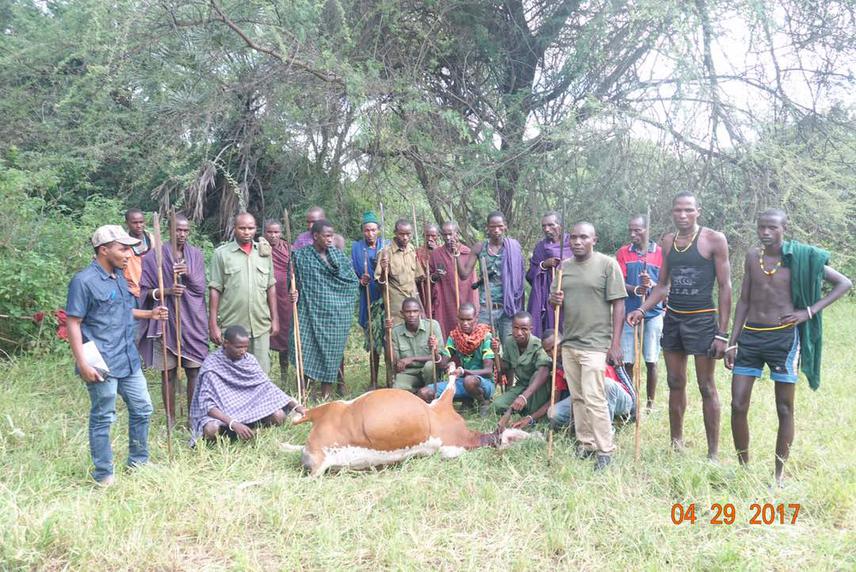Peter Rogath
Large carnivores are increasingly in conflict with human population growth and development worldwide (Weise et al., 2019). The growing human population and its spreading footprint are pushing wildlife to live in very-closer proximity to humans (Inskip & Zimmermann, 2009). Human-carnivore conflict is the leading cause of carnivore declines globally (Woodroffe & Frank, 2005). Over the last century, Africa's large carnivores have experienced perilous declines, mainly due to anthropogenic factors (Ripple et al., 2014). Relative to their historical range, lions lost 75% (Riggio et al., 2013), cheetahs lost 91% (Durant et al., 2017), and leopards lost 63%-75% (Jacobson et al., 2016). The majority of African carnivores are now limited to protected areas and enclaves of low human density (Broekhuis et al,. 2017). Agro pastoralists keep cattle and small stock consisting of sheep and goats for cultural and economic status (Broekhuis et al., 2017). Depredation on livestock leads to retaliation against the offending carnivore (Kissui, 2008). Whilst lions are usually the subject of retaliatory killings, leopards, spotted hyaenas, wild dogs and cheetahs are also frequently killed, prompting multiple species declines (Inskip & Zimmermann, 2009). Notwithstanding decades of study of conflict mitigation (Trinkel, M., and Angelici, 2016), the sustainable coexistence of rural people with carnivores remains a priority. Successful conflict mitigation relies primarily on behavioral changes and risk minimization (Reddy et al., 2017). This ultimately involves rural communities directly in planning and implementing coexistence strategies (Weise et al., 2019). Since they face the risks and costs of coexistence, local communities are the key players in carnivore conservation outside protected areas (Weise et al., 2019). Local communities seldom have direct access to information on carnivore surveillance and are too often ignored during conservation planning processes (Weise et al., 2019).

The objective of our proposed project is to carry out a baseline survey to assess local attitudes towards large carnivores and their management. We hope to put our work, Tsavo-Mkomazi Ecosystem and its people and wildlife on the world stage by making presentations at scientific conferences. In terms of local management authorities, we will make recommendations. We will help establish benchmarks against which future progress can be assessed.